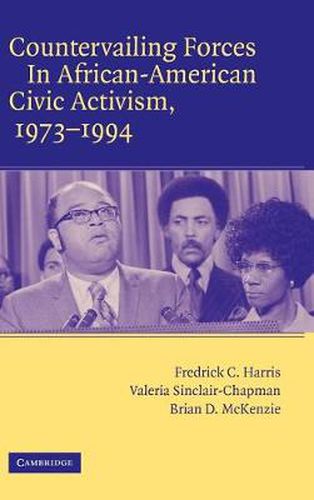Readings Newsletter
Become a Readings Member to make your shopping experience even easier.
Sign in or sign up for free!
You’re not far away from qualifying for FREE standard shipping within Australia
You’ve qualified for FREE standard shipping within Australia
The cart is loading…






In this study assessing black civic participation after the civil rights movement, Fredrick C. Harris, Valeria Sinclair-Chapman and Brian D. McKenzie demonstrate that the changes in black activism since the civil rights movement is characterized by a tug-of-war between black political power on one side and economic conditions in black communities on the other. As blacks gain greater access and influence within the political system, black participation in political activities increases while downward turns in the economic conditions of black communities produce less civic involvement in black communities. Examining changes in black activism from the early 1970s to the 1990s, this tug-of-war demonstrates that the quest for black political empowerment and the realities of economic and social life act as countervailing forces, in which negative economic and social conditions in black communities weaken the capacity of blacks to organize so that their political voices can be heard.
$9.00 standard shipping within Australia
FREE standard shipping within Australia for orders over $100.00
Express & International shipping calculated at checkout
In this study assessing black civic participation after the civil rights movement, Fredrick C. Harris, Valeria Sinclair-Chapman and Brian D. McKenzie demonstrate that the changes in black activism since the civil rights movement is characterized by a tug-of-war between black political power on one side and economic conditions in black communities on the other. As blacks gain greater access and influence within the political system, black participation in political activities increases while downward turns in the economic conditions of black communities produce less civic involvement in black communities. Examining changes in black activism from the early 1970s to the 1990s, this tug-of-war demonstrates that the quest for black political empowerment and the realities of economic and social life act as countervailing forces, in which negative economic and social conditions in black communities weaken the capacity of blacks to organize so that their political voices can be heard.